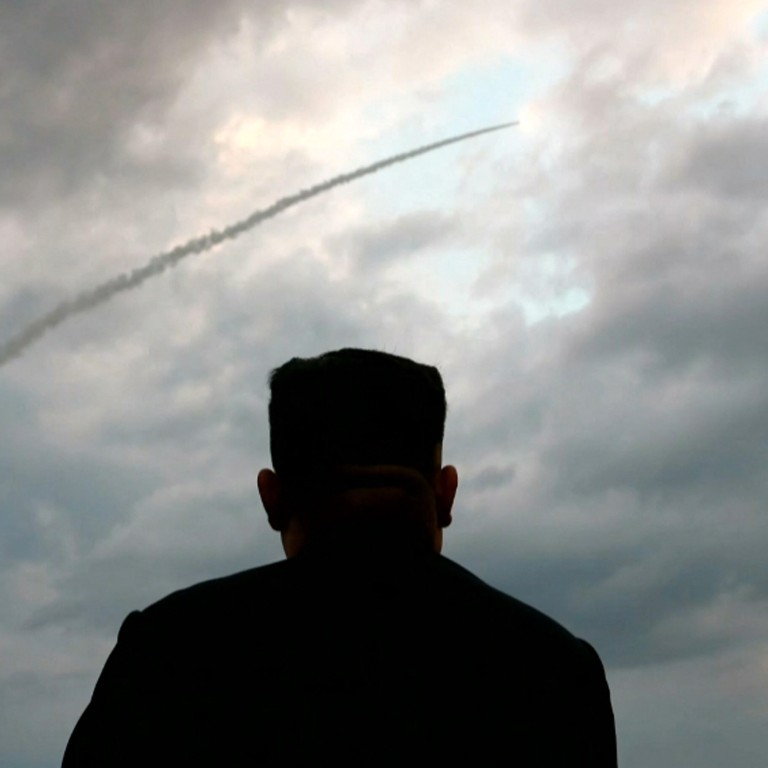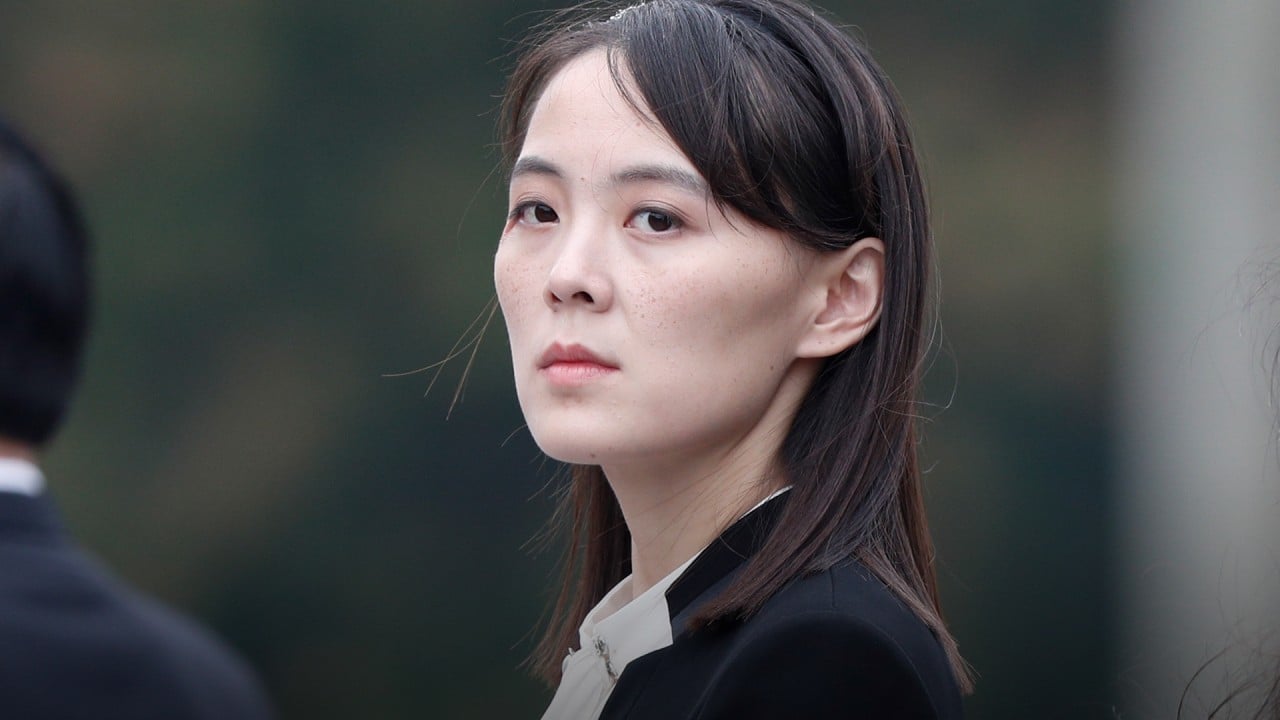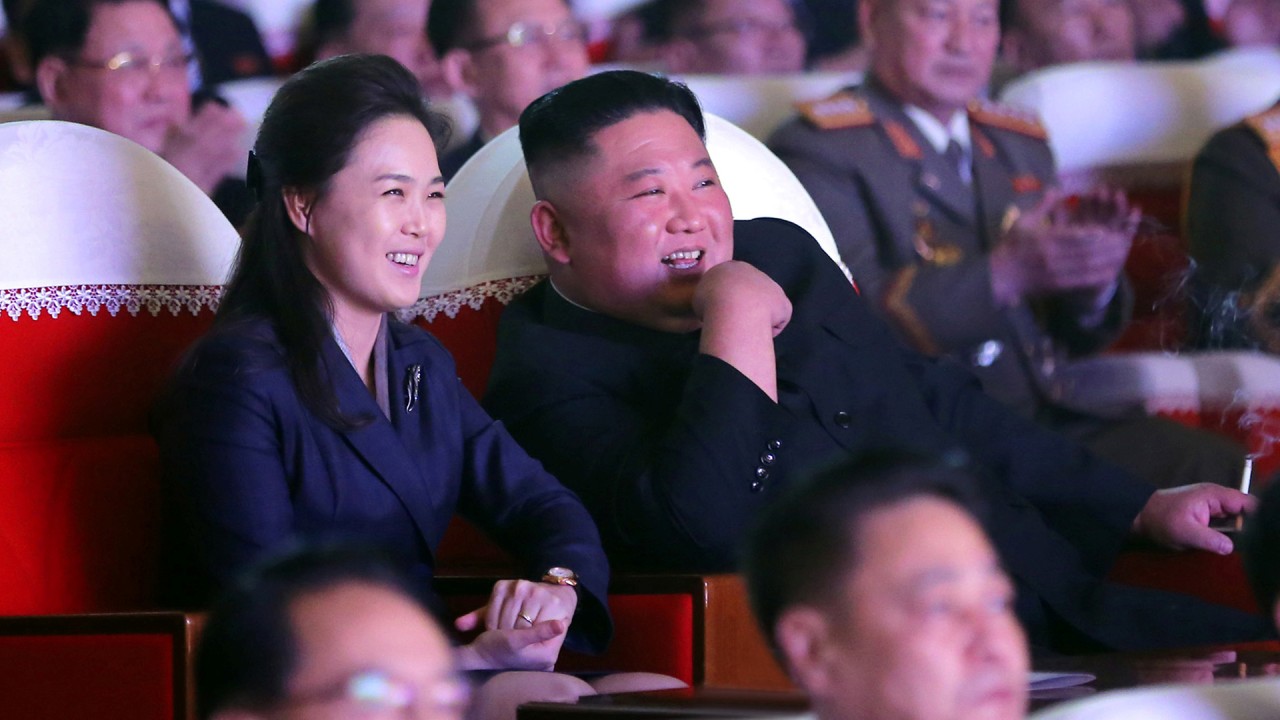
North Korea launches short-range missiles, but US officials play down move
- Biden administration officials say Pyongyang fired several missiles over the weekend, after US held military exercises with South Korea
- Missiles did not violate UN sanctions, and officials said the moves were not seen as provocative
Senior US administration officials on Tuesday said that North Korea had fired short-range missiles over the weekend, following multiple days of meetings between US Secretary of State Antony Blinken and his counterparts from Tokyo, Seoul and Beijing.
The officials said the launches – Pyongyang’s first known weapons tests this year – did not violate any UN Security Council sanctions, and emphasised they did not view them as a provocation against the administration of President Joe Biden.
“We’ve been in administrations when North Korea has really tested with provocative actions – nuclear tests, long-range systems,” one of the officials told reporters.
“Almost every kind of activity – missile, nuclear activity – is covered by UN Security Council resolutions,” he said. “Because this does not, it probably gives you an indication of where it falls on the spectrum of concern.”
North Korea seeks to strengthen ties to China, even as it ignores US
The officials declined to offer specific details about the exact nature of the missile launches, first reported by The Washington Post, confirming only that they had taken place over the weekend.
“It would be hard to find a place on the planet where there is more vigilance,” another official said, adding that the administration did not want to “hype” what they saw as “normal” military activity.
“We do not publicly respond to every kind of test,” he said.
North Korea test-fired what appeared to be two cruise missiles, a military Joint Chiefs of Staff official in Seoul said on Wednesday. It came days after Kim Yo-jong, the sister of North Korean leader Kim Jong-un, threatened the United States and South Korea for holding joint military exercises.
“The North has test-fired what were believed to be two cruise missiles from Onchon County on Sunday morning. They were all short-ranged”, the official told the South China Morning Post. Earlier news reports from the US said the projectiles launched on Sunday off the North’s western coast were short-range ballistic missiles.
Neither cruise missiles nor short-range missiles are covered by UN Security Council resolutions aimed at deterring North Korea from pursuing a nuclear programme.
The test-launch was reportedly detected by South Korean military surveillance assets. Professor Yang Moo-jin, of the University of North Korean Studies, said the tests were conducted during the North’s military’s annual winter exercises, being held between January and April.
“This is a low-level provocative act that came on the heels of the US-South Korea joint military drills,” Yang said. “However, we have to wait and see whether this is one-off action conducted during the military exercise or [is followed by] higher-level provocative acts.”
Yang said the tests also sent a signal before the upcoming three-way meeting of top security officials from the US, Japan and South Korea.
“The US is expected to focus on pressing the South and Japan to mend fences with each other so that the three-way alliance can move forward in pressing the North,” Yang said.
Jenny Town, a senior fellow at the Stimson Centre think tank in Washington and director of the North Korea monitoring website 38 North, said it was unsurprising that the administration had not sounded any alarms over tests that the officials downplayed as relatively small-scale.
“If this was normal military activity, then it makes sense it wasn’t reported,” she said.
Blinken asks China to pressure North Korea into abandoning nuclear programme
The tests also come as the Biden administration prepares to complete a lengthy review of US policy on North Korea.
The officials said that they had reached out to “virtually every” US official who had negotiated with Pyongyang since the mid-1990s, including Trump administration officials who took part in the Hanoi and Singapore summits between former president Donald Trump and Kim Jong-un.
Next week, US National Security Adviser Jake Sullivan will meet top national security officials from Japan and South Korea in Washington, as part of the same review process, the administration officials said.
So far, the Biden administration has held back on sharing details of what its North Korea strategy will look like. The officials told reporters on Tuesday that China’s diplomats were also asking about the status of the review during the meetings in Alaska.
Amid the policy review, the Biden administration has also reached out to North Korea but has not received a formal reply.
After Blinken’s meetings last week, Choe Son-hui, a senior official in Pyongyang, released a statement saying that any conversations would be meaningless if the US does not change its policies first, according to North Korean state media. Analysts say those policies probably include sanctions relief and the removal of the US military presence in South Korea.
The Biden administration officials said on Tuesday that they did not want Pyongyang to think that “our door is not open to talking”.
Sung-yoon Lee, professor at the Fletcher School of Law and Diplomacy at Tufts University, cautioned that even if North Korea’s latest weapons test was small and unprovocative, it still served as a warning of what might come next.
“North Korea usually opts for graduated escalation, starting with short-range missile flights, punctuated by an ICBM or nuclear test,” he said.
“The real test for the Biden administration will come when Pyongyang resorts to a post-provocation peace ploy and dangles peace, denuclearisation ‘of the Korean peninsula’, and summit pageantry,” he added.
“When the time comes, will the Biden administration have the fortitude to eschew talks for the sake of giving Pyongyang a pass – in fact, more time to build more bombs – and resolutely enforce sanctions?”
Additional reporting by Park Chan-kyong



